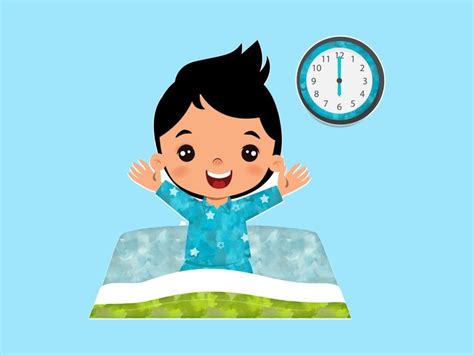Waking up on your first alarm clock can be a difficult task, but it is possible with the right steps.

According to the National Sleep Foundation, about 70% of adults report waking up feeling tired at least once a week.
Waking up tired can cause a cycle of fatigue and missed alarms. This can lead to problems at work, school and social situations.
Benefits of Waking Up on the First Alarm
- Improved alertness and energy levels throughout the day
- Increased productivity and focus
- Reduced risk of accidents and errors
- Improved mood and well-being
- Better sleep quality
How to Wake Up on the First Alarm Clock
There are a number of things you can do to wake up on the first alarm.
1. Establish Regular Sleep and Wake Times
One of the most important things you can do is to establish a regular sleep and wake schedule. This means going to bed and waking up at the same time each day, even on weekends.
- The National Sleep Foundation recommends getting 7-9 hours of sleep per night for adults.
- Children and teenagers need even more sleep, with school-aged children needing 9-11 hours of sleep per night and teenagers needing 8-10 hours of sleep per night.
People who have irregular sleep schedules tend to have a harder time waking up in the morning. This is because their body’s natural sleep-wake cycle is disrupted.
2. Create a Relaxing Bedtime Routine
Many people find it helpful to create a relaxing bedtime routine to help them fall asleep more easily. This could include:
- Taking a warm bath
- Reading a book
- Listening to calming music
- Meditating or doing yoga
- Avoiding caffeine and alcohol before bed
When you create a relaxing bedtime routine, you signal to your body that it is time to sleep.
3. Make Sure Your Bedroom is Dark, Quiet, and Cool
The ideal sleep environment is dark, quiet, and cool. These conditions promote relaxation and sleep.
- If your bedroom is not dark, try using blackout curtains or a sleep mask.
- If your bedroom is noisy, try using earplugs or a white noise machine.
- If your bedroom is not cool, try lowering the temperature or using a fan.
4. Avoid Caffeine and Alcohol Before Bed
Caffeine and alcohol can interfere with sleep. Therefore, be sure to avoid caffeine and alcohol in the hours leading up to bedtime. Drink water, herbal tea, or juice in the evening.
5. Get Regular Exercise
Regular exercise can help you sleep better at night. Exercise helps to tire your body and mind, making it easier to fall asleep.
The National Sleep Foundation recommends getting at least 30 minutes of moderate-intensity exercise most days of the week.
6. See a Doctor if You Have Trouble Sleeping
If you have trouble sleeping despite following these tips, see a doctor. There may be an underlying medical condition that is interfering with your sleep.
Common Mistakes to Avoid
- Hitting the snooze button
- Going back to sleep after waking up
- Getting out of bed and then going back to sleep
- Napping for too long during the day
These actions can make it harder to wake up on the first alarm.
Conclusion
Waking up on the first alarm clock is possible with the right steps. By following these tips, you can improve your sleep quality and make it easier to wake up feeling refreshed and energized.
